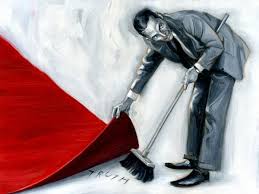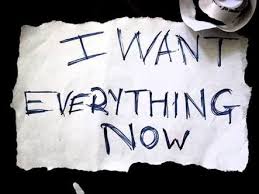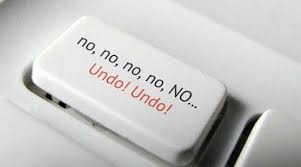 June 2020
June 2020
Lack of transparency is a proven way of hiding what some people don’t want others to know. In condo communities it may allow a condo board to blame prior boards for current troubles, or make it unclear that current difficulties exist thus leaving them for a future board to address.
Transparent condo boards tend to be the most effective. They acknowledge problems sooner and deal with them thus saving everyone money and frustration. No unnecessary burdens are left for others to deal with at a later date.
Ironically, there may be no better example of the benefits of transparency than a company best known for cleaning up dirt – Dyson.
Dyson was unknown until about 1983. James Dyson developed more than 5,000 prototype designs for what was to become his revolutionary vacuum cleaner between 1979 and 1983. In that year only about 500 units were sold by mail order.
A typical 1974 vacuum cleaner would lose suction and require ongoing maintenance to keep dirt from clogging up. When using a 1974 vacuum cleaner it was always hard to tell if it was actually working and picking up dirt.
James Dyson believed there was a better way and, in 1991, started Dyson Appliances Unlimited. An important innovation was storing dirt in a transparent container. Another was a system for collecting dirt that would not clog up. Prior to this vacuum cleaners would trap dirt in a hidden bag that was removed and thrown away. Competitors and marketers thought Dyson was crazy. Everyone said consumers don’t want to see dirt. Retailers hated it.
Customers loved it. They were fascinated by how the vacuum worked, and could see dirt being picked up.
Apparently, James Dyson knew something about transparency. Dyson Appliances is now a multi-billion pound British company employing over 8,500 people. His products are sold online, and in department and appliance stores.
Today, Dyson continues to offer this transparency so that customers are confident dirt is being collected. Rather than being scorned by competitors, his innovations are copied.
As with Dyson, condo communities transparent in their dealings with residents (customers) create trust. The benefits of investing in trust are numerous and create long-term value. When problems arise – and they will from time to time in all communities – trust makes it easier to deal with them.
 Condo boards can be overly concerned about conflict, communications and being wrong. Their natural response is to become insular and secret. They fail to, or discourage, effective sharing of information for entirely reasonable reasons. Condo residents are a tough crowd. They complain, blame others and always have a “better way”. Most are unprepared to put in the necessary time and work to maintain their home. It is easier to hold others accountable than to be accountable.
Condo boards can be overly concerned about conflict, communications and being wrong. Their natural response is to become insular and secret. They fail to, or discourage, effective sharing of information for entirely reasonable reasons. Condo residents are a tough crowd. They complain, blame others and always have a “better way”. Most are unprepared to put in the necessary time and work to maintain their home. It is easier to hold others accountable than to be accountable.
The best managed condo communities have capable and competent individuals willing to be accountable. They do their best and communicate openly. They make decisions on behalf of the community while dealing with a vocal minority uninterested in being accountable. They have fewer problems and conflicts. Perhaps this is why it is more difficult or expensive to purchase homes in these communities. Buyers know a good home when they find it….and want to be part of it.
Transparency = Honesty
Honesty = Trust
Share the Dirt
Don’t make assumptions about how residents will react to seeing the dirt. If there is dirt to see, open the door wide so that residents don’t have a knowledge gap to fill with rumour, innuendo and false information. Transparency will reduce opportunities for conflict and mistrust while creating confidence in the process. Allow residents to trust that you will be open and truthful with them.








